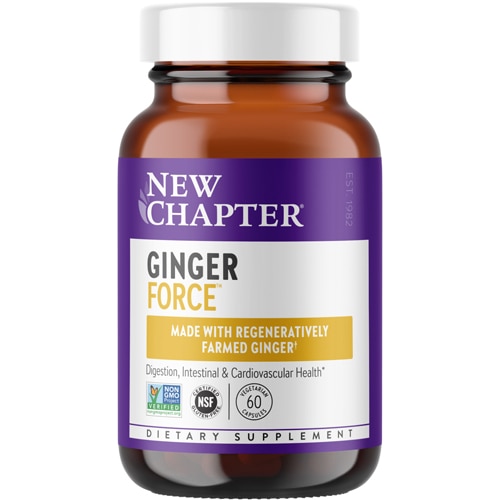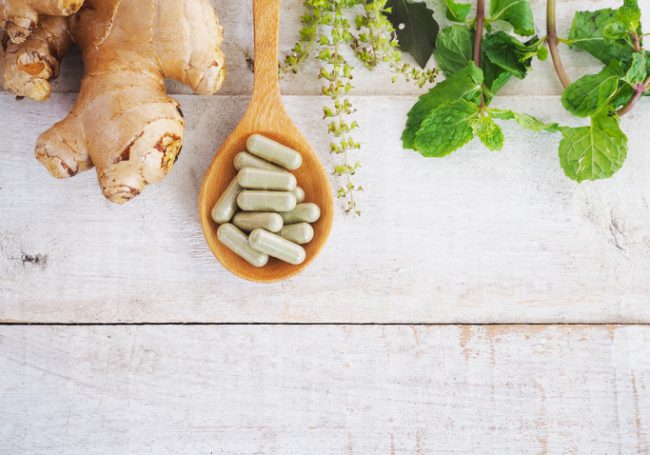Au naturel is no longer relegated to liberal beaches and green smoothies: More and more people are searching for organic alternatives to conventional, Western therapies, with Americans spending $11 billion annually on vitamins and minerals and one in three taking a dietary supplement daily.
The reasons behind this growth are vast and varied, from a heightened interest in overall well-being to a turning away from "Big Pharma."
But trendiness isn’t synonymous with credibility or safety. Here are 5 common misconceptions about herbs—and what you should know before taking them:
1. “Natural” is safe
Herbal supplements are frequently made from botanicals—think only of ginger, garlic and gingko (and that’s just the Gs we’re talking about!) To many, this alone suggests they’re undoubtedly safe for consumption.
But consider this: marijuana, opium and psilocybin are also botanicals, and we all know these aren’t wholly innocuous, especially when ingested in abundance.
Take it from the American Cancer Society, who reminds us that “plants are made up of many chemicals” and that “some of these chemicals can be helpful while others are poisonous or can cause allergies in humans. Botanicals that are marketed as ‘all natural’ are not always the most helpful ones, since they may not be refined to remove potentially harmful chemicals.”
The solution? Educating yourself. Herbal supplements contain different parts of a plant, from leaves to roots and stems, and each of those parts has a particular effect on your body. (In one example of many, dandelion root naturally supports digestion, while its leaves organically encourage urinary health.) Gather as much information as you can about the herb in question, and call the manufacturer, visit the National Institutes of Health’s website or consult your doctor if you have any questions.
2.…And given that they’re natural, there are no side effects
This is one of the biggest myths about herbal supplements. And yet—science and medicine aside—haven’t we all heard of someone who has had a less-than-desirable experience?
As the National Institutes of Health says, “the general perceptional that herbal remedies or drugs are very safe and devoid of adverse side effects is not only untrue, but also misleading.” Your job is to discuss the herbs you’re considering with your primary care physician and/or naturopathic doctor, and to read the labels on your bottles—carefully. Not only should your herbs come from a reputable, U.S.-based manufacturer, but, as confirmed by the Mayo Clinic, you should also investigate the complete list of ingredients (either in the Supplement Facts panel or beneath it) and check them out on the aforementioned National Institutes of Health’s website.
3. They can be used in lieu of food
George Jetson wasn’t the first character to conceive of getting our daily nutrition in a capsule but he may be the most memorable—at least for people of a certain age. And while the cartoon figure was certainly onto something, no herbal supplement should be considered an out-and-out substitute for its food-based counterpart. The key word here, after all, is supplement.
“Supplements can’t replace a healthy diet,” confirms dietician Joan Salge Blake, a professor at Boston University and a spokesperson for the Academy of Nutrition and Dietetics. “You need to look at them as a tool, something you can take on top of eating right.”
So while you may choose to enhance your diet with a cranberry supplement in the name of potentially supporting heart health, you also need to feed your ticker with foods that naturally encourage cardiac well-being (such as avocados, berries, salmon, beans and almonds).
4. All herbal supplements are created equal
In short? Not so.
“Natural and herbal compounds vary in strength,” Forbes reports, quoting Dr. Wendy Biggs, a family physician at Midland Family Medicine Residency in Michigan, who “draws an analogy between dietary supplements and wine”: “Every year vineyards will produce wines of a different character,” she says. “Likewise herbal supplements such as St. John’s Wort may be of different strengths each year.”
This doesn’t give you carte blanche to take as many herbal supplements as you’d like to make up for the possible difference—far from it. Rather, it means tempering your expectations and, again, looking at herbs as a compliment to your healthy diet and lifestyle, not a panacea.
5. Herbal supplements and conventional medicines are mutually exclusive
Aiming to eliminate chemicals from your body is a commendable endeavor—especially when those chemicals are nicotine and other harmful additives—but sound judgment should be heeded when it comes to taking herbal supplements.
Meaning, of course, that seeking to enhance your diet with herbs may be a splendid idea but traditional therapies shouldn’t be ignored—or disparaged—when they’re called for.
“One common misconception is that alternative and conventional medicines are mutually exclusive,” Forbes writes. “That’s not so, says Dr. Monica Mykelbust, medical director of the University of Maryland Center for Integrative Medicine. In her view most patients are best served by a combination of the two called CAM, for Complementary and Alternative Medicine.” In fact, “she recommends that anyone suffering immediate, serious or painful symptoms go the conventional route first,” Forbes goes on to say. To phrase it differently, work with your doctor on finding that perfect balance between herbal supplements and good old common sense.




